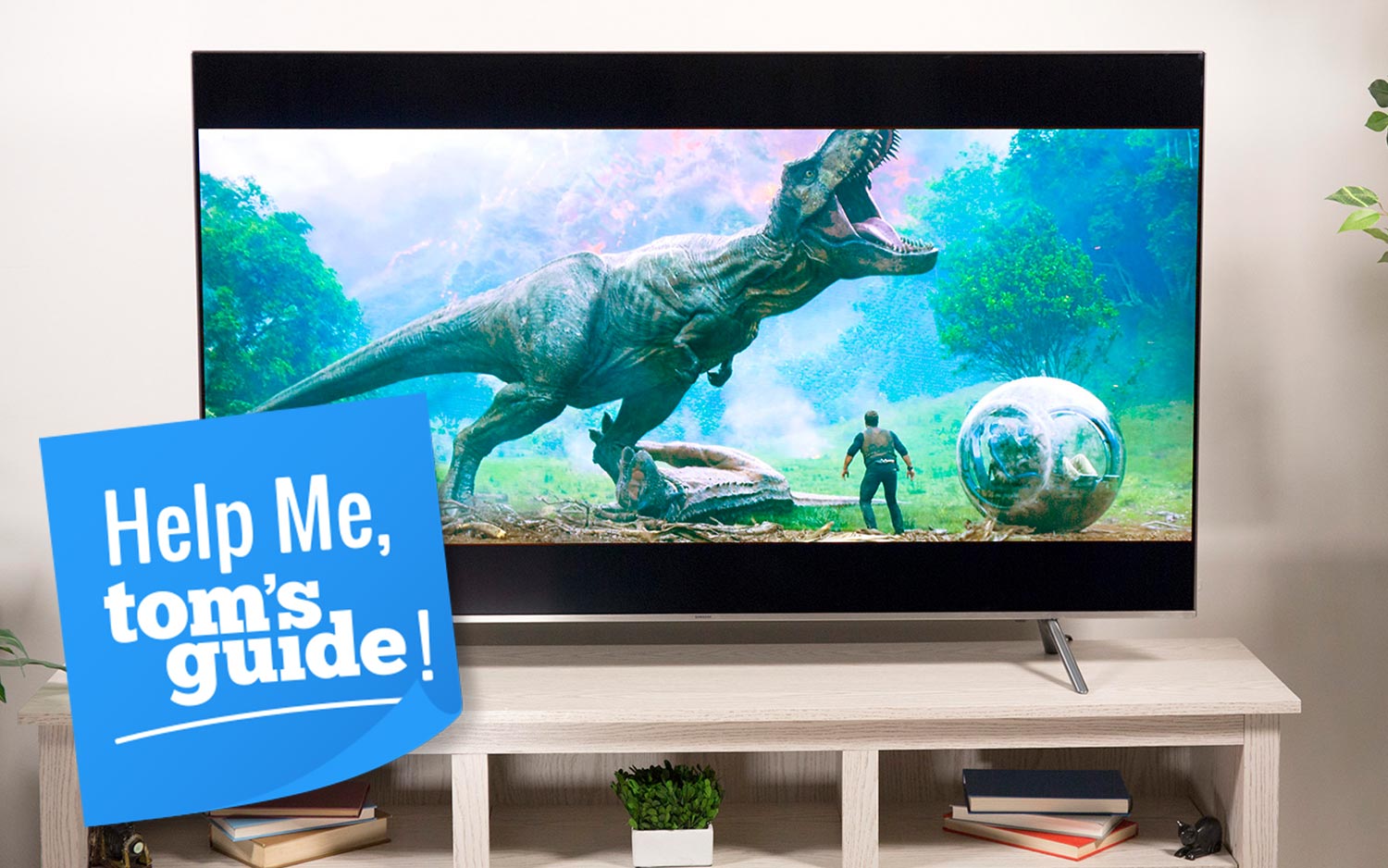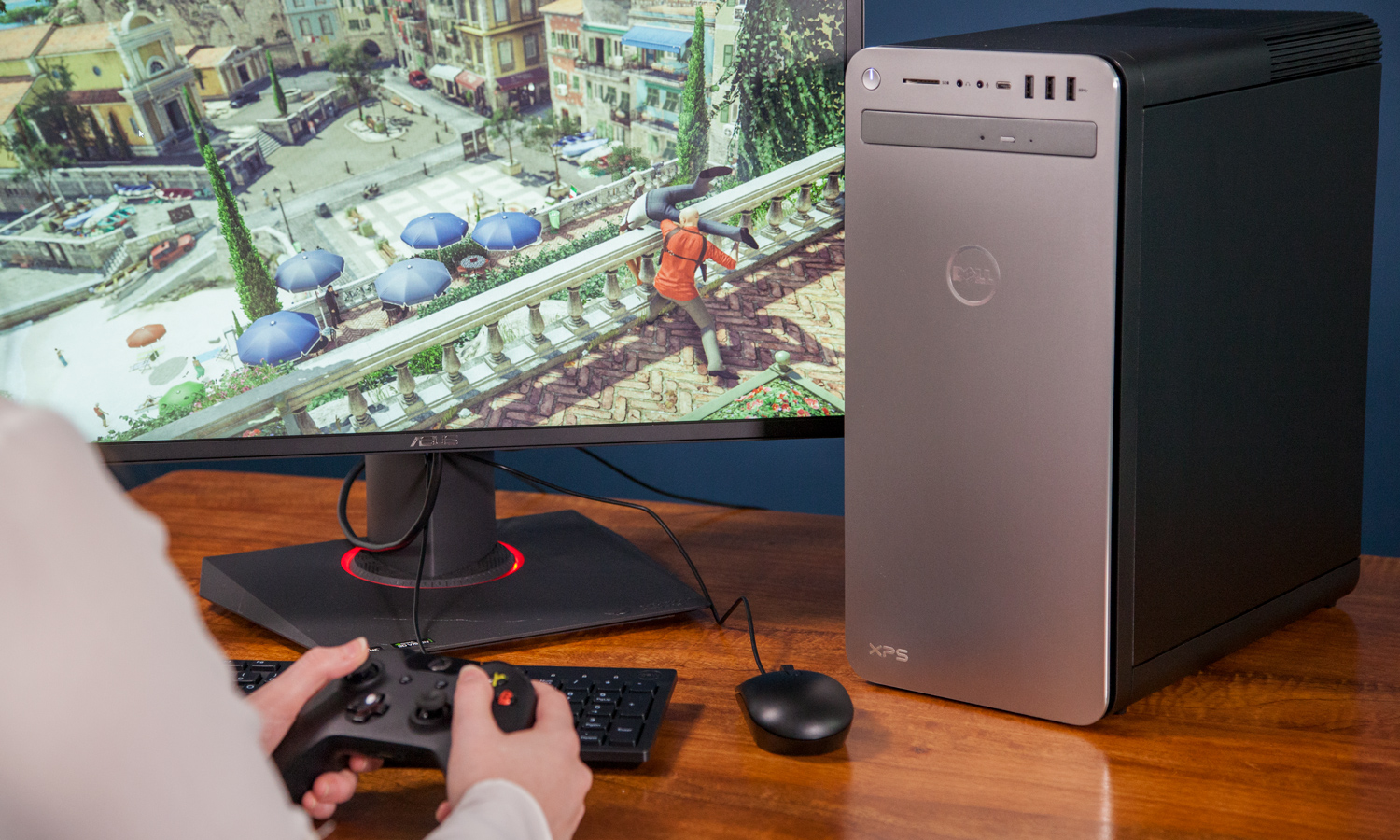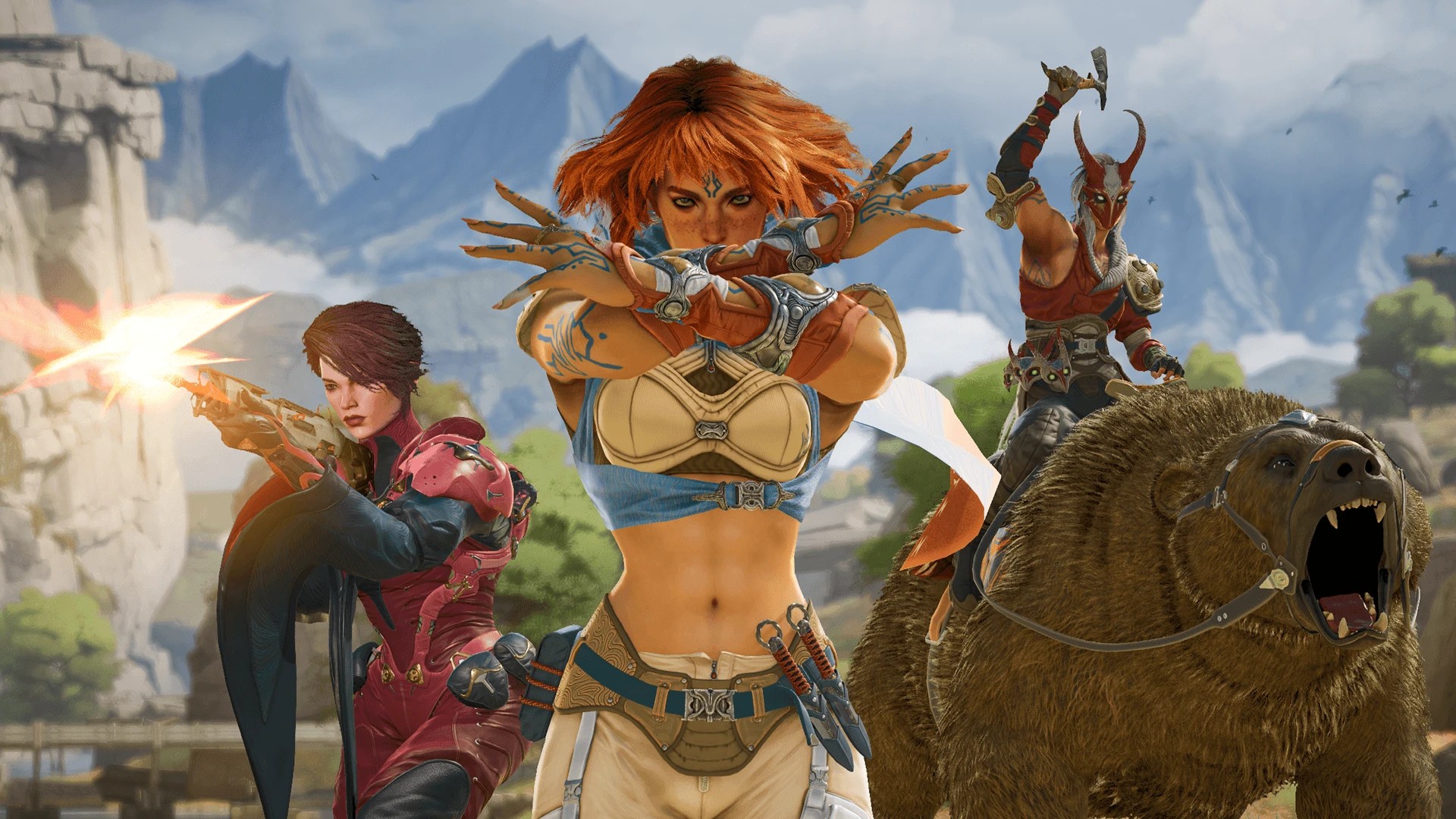Help Me, Tom's Guide: Which TV Can I Use as a Gaming Monitor?
Want to use a TV as your gaming monitor? Here's what you need to know.
It's a question that's plagued humankind since the dawn of time — or at least, since televisions started coming standard with PC visual hookups: "Can I use a TV as a gaming monitor?" Observe what our forum user namaste2u had to say:
"What TV specs do I need to look for to use it as a computer monitor?" (Short and sweet. We like it.)

First and foremost, you can use almost any TV as a gaming monitor, provided the set has the right ports. However, that doesn't mean you should just pick up any old model at Best Buy and assume that the rest will take care of itself. While TVs offer a variety of benefits over standard gaming monitors, there's a reason most PC gamers prefer to stick with smaller screens that have more-dedicated hardware.
Still, if you want to take your gaming rig into the living room, you can split the difference between the elegance of a gaming monitor and the convenience of a full-size TV.
Reasons to Use a TV
The good news for namaste2u is that if he wants to hook up his PC to a TV, almost any modern model will work. A TV, be it a full-HD or UHD model, will definitely have an HDMI port, as will any modern graphics card. That means that to hook up a gaming PC to a television, all you need is an HDMI cable. (You might be able to use a DVI or VGA cable, depending on how fancy your TV is, but then you'll have to use a separate audio connection. Weigh your options accordingly.)
There are a few reasons to use a TV rather than a traditional monitor. The primary one is size. TVs generally run a lot bigger than gaming monitors. Given the choice between squinting at The Witcher 3 on a 20-something-inch monitor and leaning back on your couch to watch the adventure unfold in 55 inches (or more!), it's not hard to see why some people opt for the latter.
MORE: The Best 4K Gaming TVs
Get instant access to breaking news, the hottest reviews, great deals and helpful tips.
The increased feasibility of living-room gaming is another reason. A few years ago, you would have had to run yards and yards of cables from your TV to your PC to your couch, creating an ugly, chaotic mess that was just begging for a small child or dog to come trip over it. (On a personal note, if you've never had a hapless golden retriever accidentally pull down your entire setup with a single mouse wire, count yourself lucky.) But now, there are wireless mice, wireless headsets and even wireless mechanical keyboards to make using a computer just as easy as using a console. And, naturally, you can still use a controller for plenty of PC games.
Reasons to Stick with the Monitor
On the other hand, TVs aren't perfect replacements for traditional gaming monitors. If they were, you would have seen a huge decline in gaming monitor sales and innovations, which just isn't the case.
The first issue is that TVs have much more input lag than their PC-centric cousins.

Granted, this lag is still measured in milliseconds, which won't make a tremendous difference in single-player adventures. But if you're trying to climb the ranks in Overwatch or similar multiplayer titles, a split second can mean the difference between glorious victory and ignominious defeat.
There's also the issue of ports. As stated above, you can connect to a TV — and even get 4K resolution — with a standard HDMI cable. But HDMI ports are no longer the acme of audiovisual fidelity. Most gaming monitors now accept DisplayPort inputs, which provide a much faster, prettier and more reliable way of getting images from your computer to a screen. Even high-end TVs generally lack DisplayPorts, meaning you'll be using last-gen technology, even on expensive TV sets.
If your computer supports full-HD resolutions rather than QHD or UHD, a large TV might also do more harm than good. Games that max out at 1080p tend to look best on screens smaller than 30 inches; on anything bigger than that, the image might get a little fuzzy. Yes, consoles generally max out at 1080p as well. But consoles also have much more-limited hardware than a midlevel to high-end gaming PC, and there's no reason to cheat yourself out of better visuals.
What to Look for in a TV
Now that you know the pros and cons of choosing a TV over a monitor, you can make an informed decision. But suppose that you, like namaste2u, have already weighed your options and still want a TV. The best thing you can do is consult a site like DisplayLag.com, which measures how fast modern TVs receive a signal from an input device.
As noted, the primary reason TVs don't make great gaming monitors is their input lag. Some TVs have calibration modes to mitigate this shortcoming; others don't. A set with calibration settings is the best TV you can get for a gaming setup. Few, if any TVs will live up to a monitor in reducing input time, but some are better than others.
MORE: Our Favorite 4K (Ultra HD) TVs Available Now
Otherwise, a 4K TV is the way to go, unless your computer is especially old or underpowered. Remember that the PS4 and Xbox One are running on outdated graphics cards and about 8GB of RAM. Your PC can probably do much better, which means you're going to want a display that supports QHD and UHD resolutions. Don't bother with a full-HD display, unless you're absolutely positive your computer won't support anything higher.
Beyond that, the only important things to look for in a TV are the standard features that make a TV good: picture quality, operating system, speakers and so forth. That's a separate article, but Tom's Guide has some good resources on how to choose a television set.
At present, even a very good TV is not going to replace the performance of a gaming monitor. But some monitor makers are looking into displays big enough for living rooms. If you don't need a TV for PC gaming in the near future, keep your ear out for more news about gaming monitors that reach 40 inches (or more). They may be the perfect middle ground between a full-size TV and a dedicated monitor.
Credit: Tom's Guide

Marshall Honorof was a senior editor for Tom's Guide, overseeing the site's coverage of gaming hardware and software. He comes from a science writing background, having studied paleomammalogy, biological anthropology, and the history of science and technology. After hours, you can find him practicing taekwondo or doing deep dives on classic sci-fi.
 Club Benefits
Club Benefits





